It’s nearly impossible to live a full life these days if you are a Luddite. The world is filled with technology; everything from communication to how we shop and even learn these days is done via phones and computers. But even though most of us, both young and old, might be fairly proficient in using our phones and computers, it’s safe to say not many of us quite know “how the sausage is made.”
For Fernando Colaco, coding has been a way of life for 30 years. He started when he was twelve and has never looked back. Like most kids who grew up in the pre-mobile-world, the bells and whistles of arcade games attracted him; he grew ever more curious about what was inside the blaring machines. In the end, a few TVs and radios had to be sacrificed to the cause of his curiosity and learning, but it was a worthy sacrifice because thirty years on, Colaco is still living his best tech dream. We spoke to Colaco on his plans for the future and his upcoming coding camp for kids.
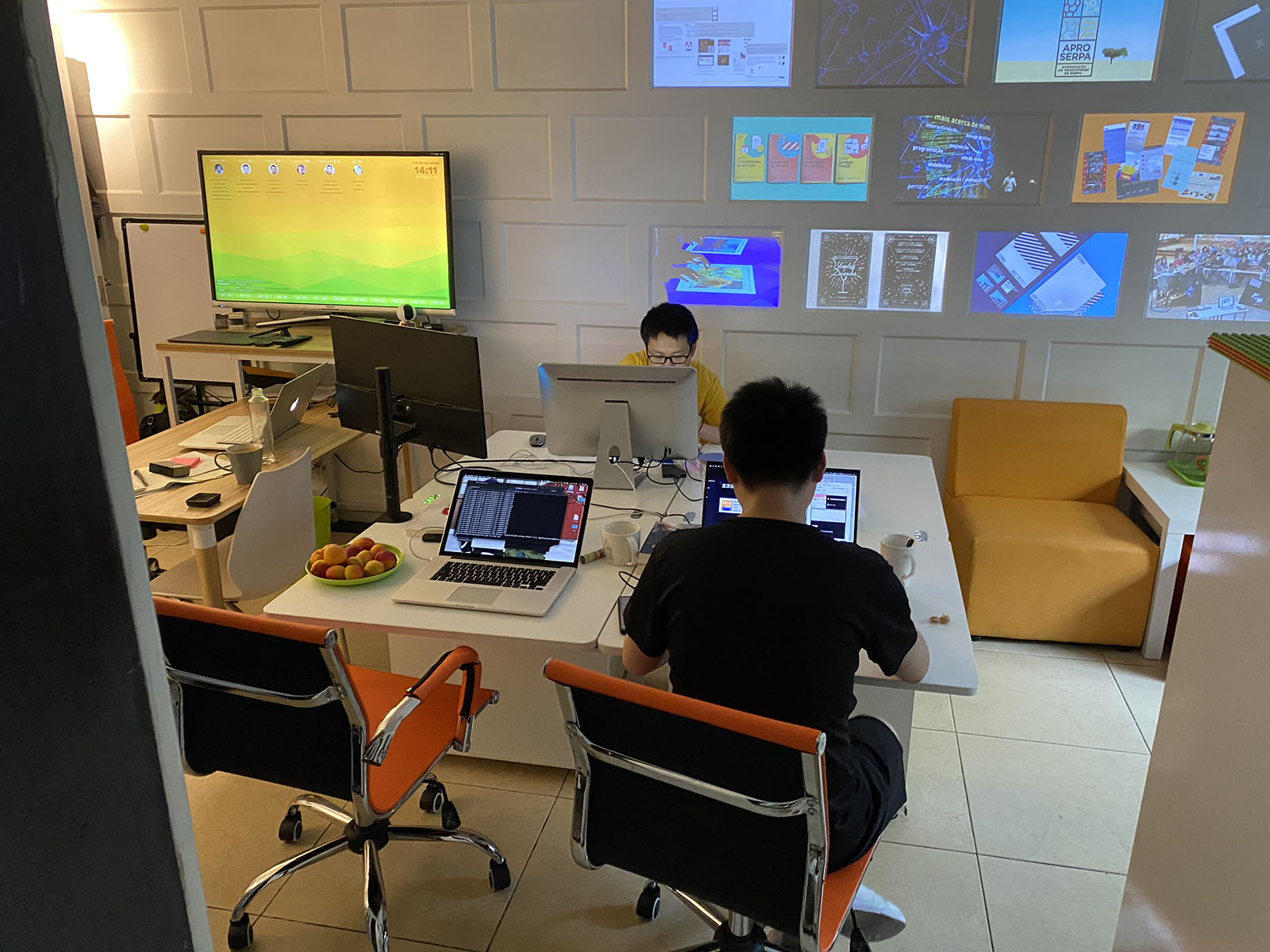
Students decide their own project and path for the coding camp.
Tell us a bit more about your company.
Colaco Technology Co Ltd, or 科莱科(北京)科技有限公司, was recently opened in the middle of the virus outbreak. After passing through a few companies, some startups, and large corporations, I decided it was time to start a team here, and that’s how Colaco Technology was born. Rather than betting on a single idea, product or service, the focus was to assemble a team with skills, experience, and very importantly, a love for their work. This way we can make any simple or complex project come to life, both client projects, as well as some of our own.
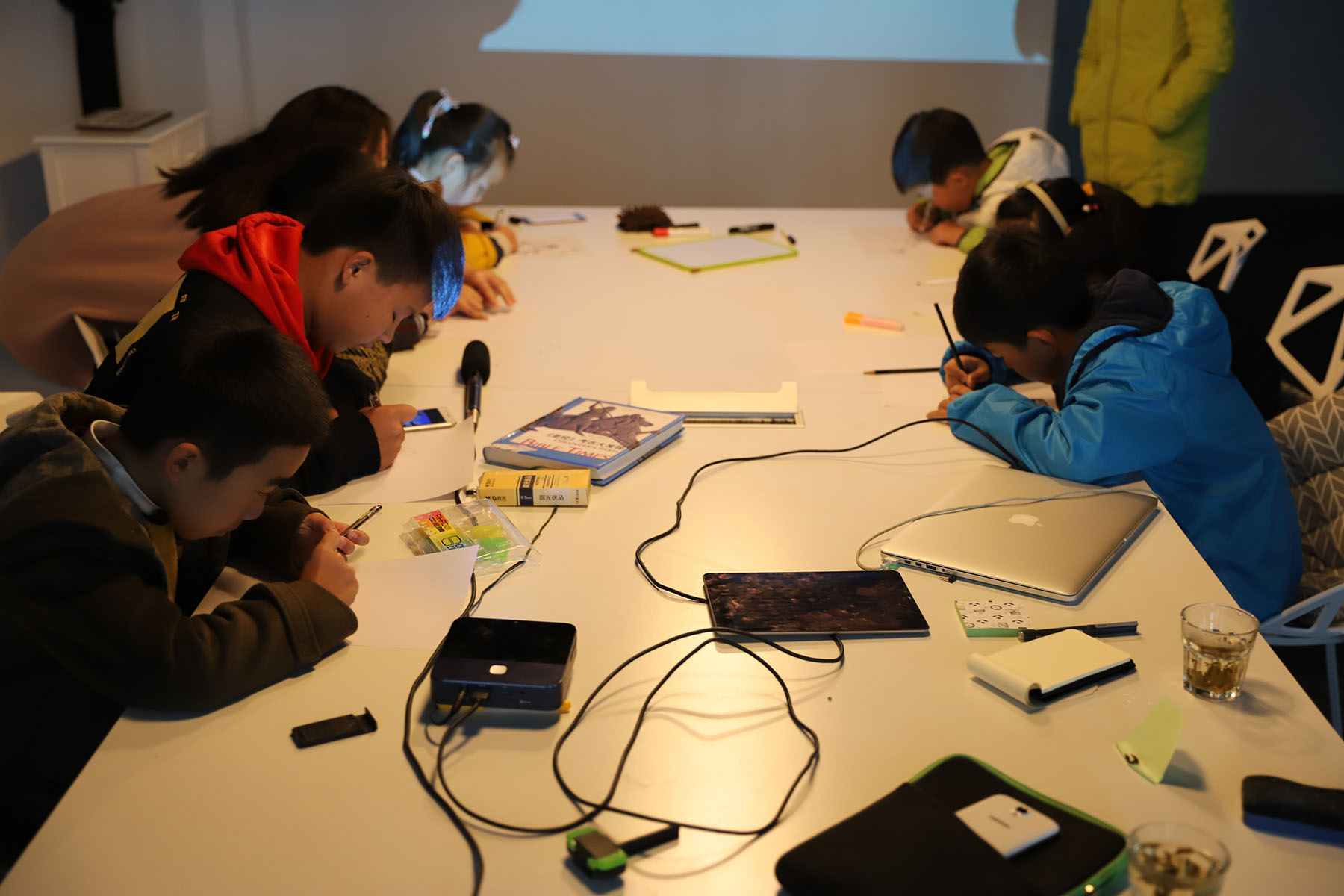
Colaco’s students also learn from one another.
What inspired you to start a coding camp for kids?
I always did these workshops intermittently in Beijing and a few other cities in China. The workshop is not really only for kids. Occasionally some “grown-up kids” are also part of it. It is also great for anyone curious about coding, and the usual problem is always the “where to start” issue, without getting lost, or scared. In China, I decided to refine the content for kids, which only needs some adjustments in pace. Kids learn much faster than adults. It also needs a different approach for going through some of the concepts, as well as adding some challenges, activities, and some fun.
What is the aim of these camps for kids?
My goal is quite simple. First, I want kids to learn something out of this, not just sit and copy whatever I churn out on my screen and share with them on a projector, or worse, force them to do through a boring and never-ending PowerPoint presentation. Secondly, I want to trigger their curiosity and let them explore, change, watch what happens, make mistakes and understand how those affect the results of what they are doing so they can fix those same mistakes. Third, I want them to understand that they can continue exploring and becoming better on their own, at their own pace, and this is not a trap to subscribe them to some long curriculum where they will be bored after a short while. And fourth, I want them to not be afraid of coding, and this is not something they will acquire after several years in university and another few years at some large company. No one needs to be a genius to become a coder, the same way you don’t need to be a genius to do addition and subtraction or speak in a new language.
What, if any, is the curriculum you use to teach kids how to code?
There’s no linear curriculum in my workshops, mostly because it all starts with all the kids deciding what they want to create during that day or two. They get involved in some teamwork, brainstorming, and collaboration becomes part of it. Most times, it will be a game, and it can go as wild as their collective imagination can. Then, anchored to the ideas and goals they want to achieve to make that game become a reality materialized in their computer and mobile phone by the end of the day, I explain and go through each of the basic concepts of programming that they need to understand, using the features, elements or concepts they chose for their idea. And that’s how the workshop goes. The pace is adapted so no one is left behind. They start solving most of the problems on their own throughout the day. They start to understand all they need in the coding world by using those concepts in practice: variables, functions, conditions, loops, and a few more essential concepts.
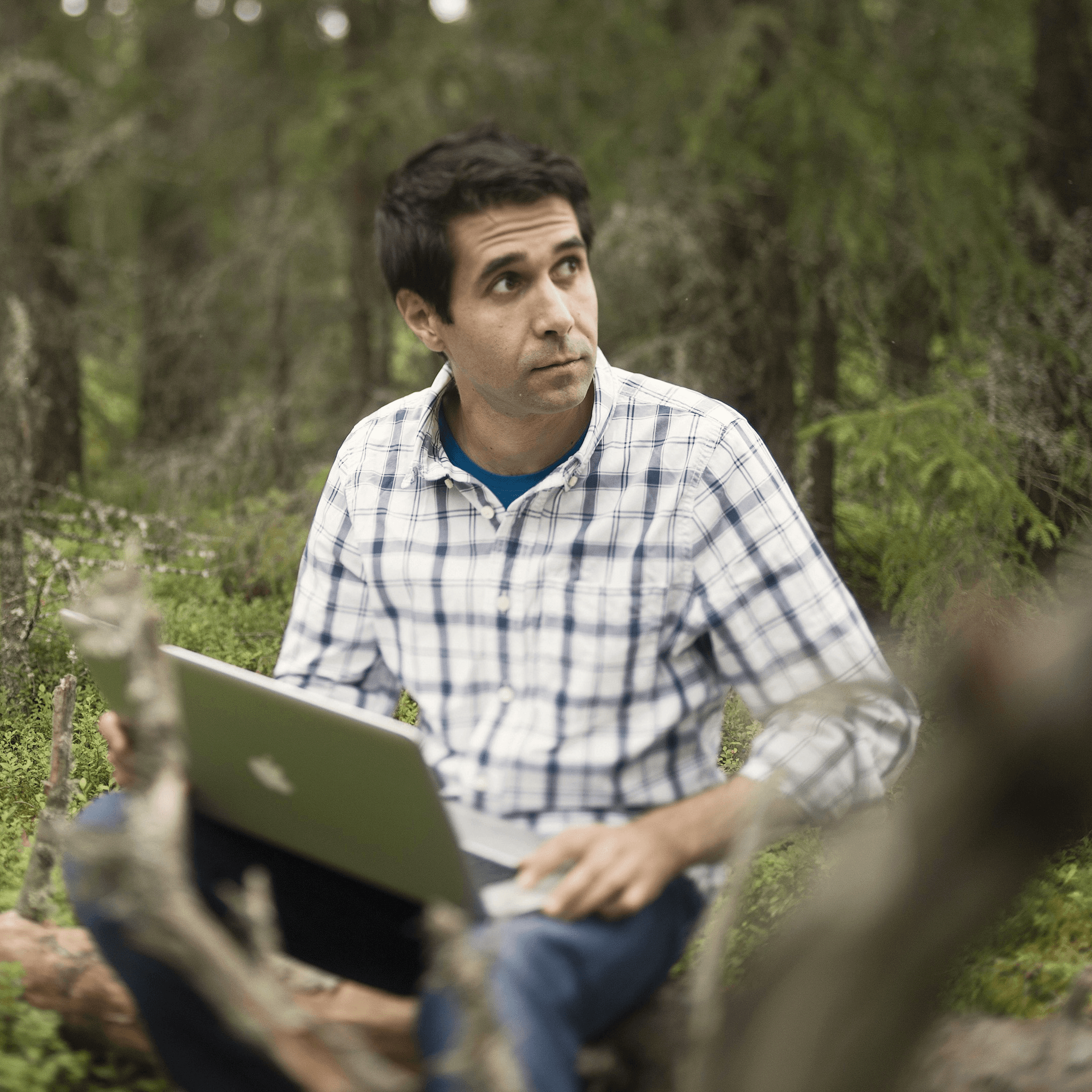
Fernando Colaco
How did COVID-19 affect these camps initially and how were you able to pull through?
During COVID-19 times the workshop was suspended, since this is a hands-on approach and again doesn’t go through any linear curriculum that self-deprecates quickly. Kids had plenty of free tutorials available online that they can follow on their own, and they would benefit from that much more than spending hours on online live video classes. Now everything is opening up again and the workshop will be back soon, in early October. We have a nice classroom at our courtyard and we will collaborate with an art school there. We will offer soon a new workshop based on Generative Art, which means using numbers, logic, some randomness, and some rules and conditions to make art from your code. This is also a playful (and fun) way to approach the coding universe, similar to the game making approach (which we will also continue offering later). This Generative Art workshop is shorter (one full day rather than two), and we decided to cut the price a lot, to be accessible and affordable to more kids after these difficult times. The one-day workshop will be available for RMB 1000 (lunch included) rather than the previous RMB 4000 (two days). A website is being put in place and anyone can check it for more information, or subscribe to get notified when the workshop starts and booking can be done.
What plans do you have for the future both for your business and the coding workshops?
The workshop will be a constant on weekends (both Saturday and Sunday). Not only because I really love to do it but also because I like to see talent emerging at a young age, and many kids are really good at it, and they wouldn’t find it if there were no hand-on offers such as this. They just need to know where to start and not get stuck on those first steps (or stuck in some dead-end tech school just wasting their time). It will be bilingual as it was before, but now I also have the support of my team.
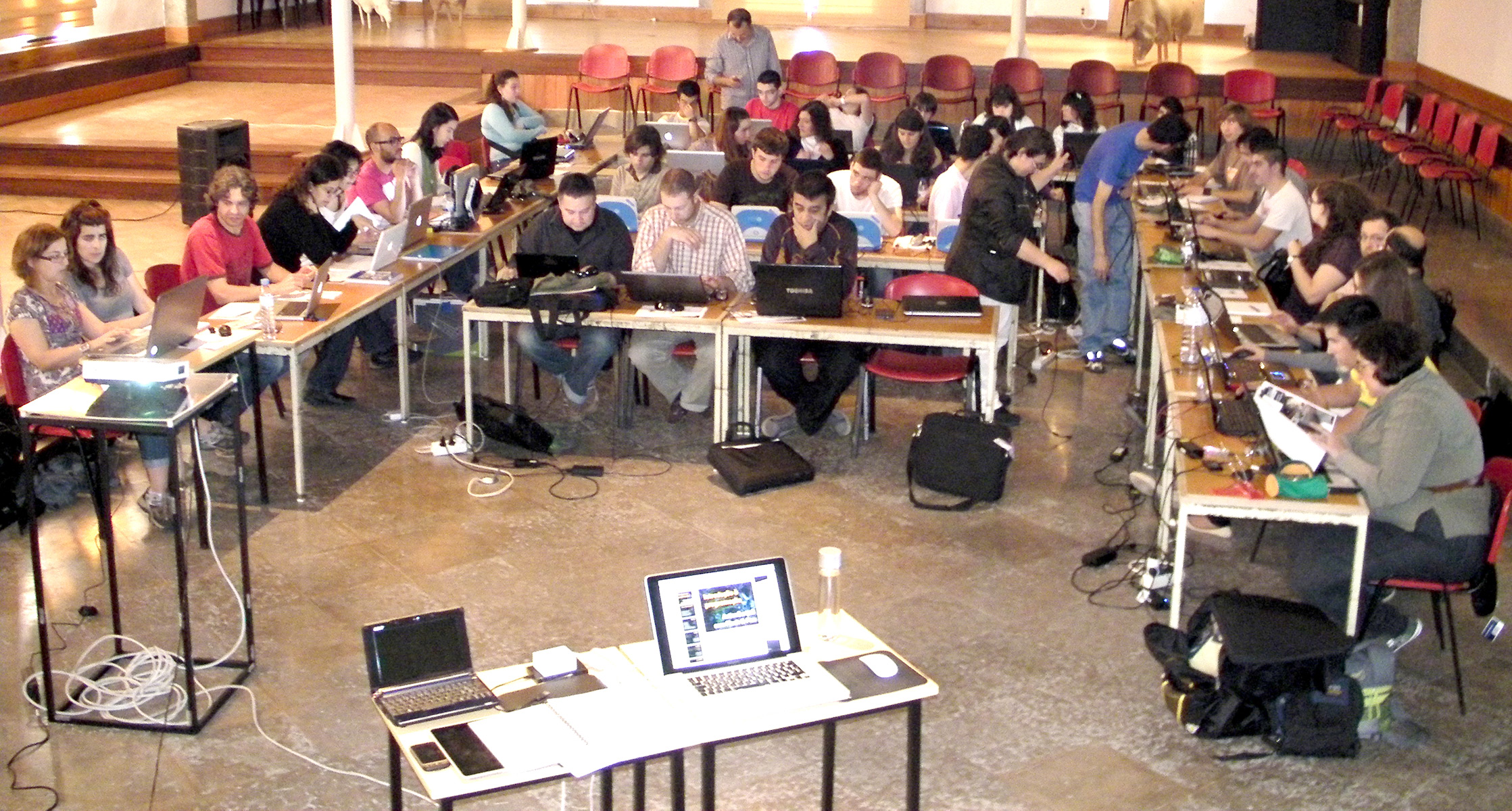
Colaco is now able to increase the class size along with demand.
How, if at all, will future coding camps be different from the ones in the past?
Aside from the much lower price of the workshop, we will also have private mentoring, which was a request from some parents for some of the most brilliant kids who really wanted to continue after the original workshop, but time didn’t allow me to mentor. This will be a one-on-one (or parent + kid) format, pre-scheduled up to several days per week, which will go from the development of any concept, be it an app or a game or even a website (it’s up to the kid), to designing the assets, developing the code, testing and improving, up to launching it on the app stores (both Apple and Android). It can take as long as the student needs, and again the focus is about understanding each step, not just watching it pass by and not acquiring any skills at all. Those private classes will be at our office, where they can also experience a real-life design and coding environment. It’s ideal for an after-school activity. Some slots will be available for the weekend (end of the day, after the regular workshops). Aside from that, this one-on-one format will also be open for adults, anyone who wants to start into this coding world, or build their own app from start to finish while learning everything it takes to get it done.
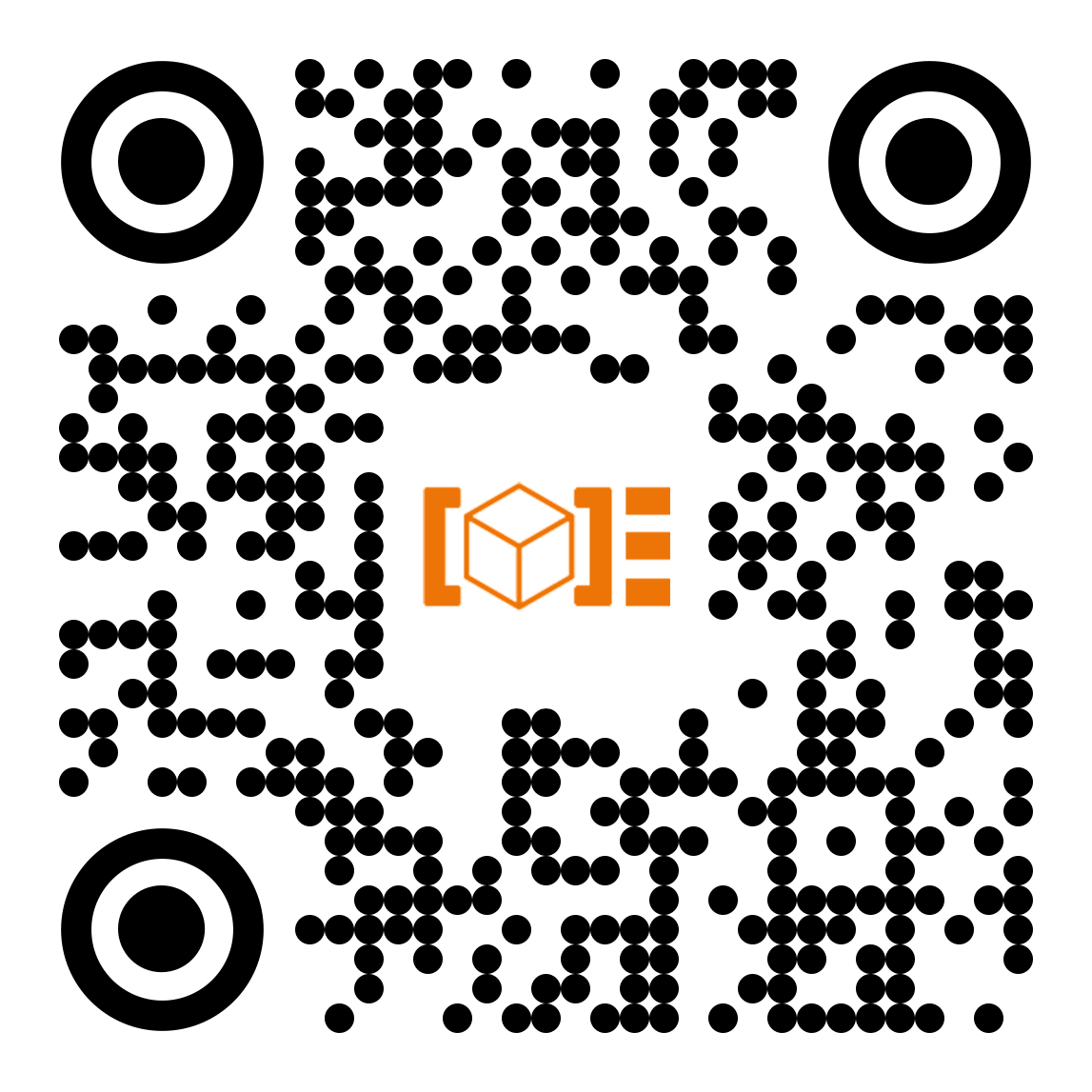
KEEP READING: Students Attempt to Crack the E-Learning Code
Photos: Fernando Colaco




